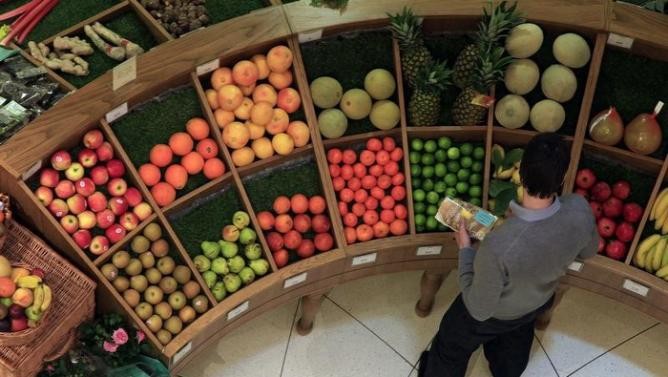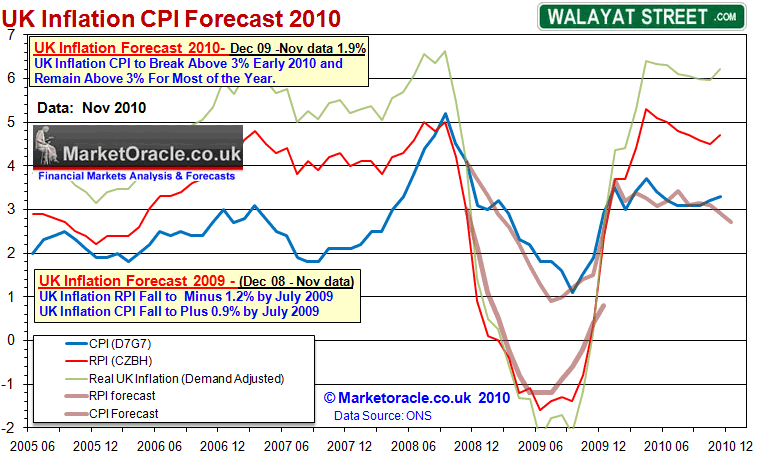How to profit from food inflation Yahoo Finance UK
Post on: 16 Март, 2015 No Comment

RELATED QUOTES
Rising grocery bills offer a chance to make money.
Inflation may have dipped slightly, but it does not hide the fact that our weekly shop is getting more expensive.
The cost of imported lamb, for instance, has risen by 34pc over the past 12 months, fresh fish is up by 14.6pc and the price of coffee has risen by 13.5pc
With food inflation soaring, many investors will be wondering whether there is an opportunity to offset the extra they are spending at the supermarket with gains made from investing in food.
Their appetite may have been whetted on Friday, when Landkom, the Aim-listed company that owns land in Ukraine that yields many wheat, announced its maiden profits. Its (Paris: FR0010370163 — news ) major shareholders include Invesco Perpetual and J P Morgan.
Mick Gilligan at stockbroker Killik agrees that food inflation does offer investors opportunities. We see strong demand-drivers for food production from a growing global population, rising emerging market prosperity and increased use of biofuels, he said. A high correlation to rising crop prices is driving demand for yield enhancers.
This drive is why Mr Gilligan rates Syngenta (Other OTC: SYENF.PK — news ). one of the world’s leading agribusiness companies, as a buy. The company uses biotechnology and genomic research to increase crop productivity, protect the environment and improve health and quality of life. With an attractive valuation and strong exposure to long-term demographic trends, Syngenta is a buy, Mr Gilligan said.
Mr Gilligan’s preferred fund choice is GAM Star Global Equity Inflation Focus, which, as the name suggests, aims to play the general inflation story and it has 21pc exposure to agriculture.
But this fund comes with a warning attached. If there is an unexpected deterioration in the prices of agricultural and energy commodities, this is likely to lead to a decline in the earnings of a number of portfolio companies and a resultant decline in their share prices. The fund is also not covered by the Financial Services Compensation Scheme or the Financial Ombudsman Service, so if things go awry, investors have little recourse.
Stock market listed supermarkets might also benefit from inflation, but how much is debatable. Jeremy Batstone-Carr at Charles Stanley said: Historically, the best way to profit from rising food inflation has been through the supermarkets. That might still be the case as they raise prices to offset rising prices imposed on them by the food producers. Quite how much they can raise prices depends, of course, on the extent to which they are mindful of a highly competitive operating environment.
Likewise, food producers might be able to prosper, but the sector is far from a one-way bet. Unilever (Other OTC: UNLNF.PK — news ) is making upside progress, but that may be more because of a rating discrepancy between itself and rivals Danone (Milan: DNN.MI — news ) and Nestle (BSE: NESTLE.BO — news ) , said Mr Batstone-Carr.
AB Foods is far from a pure play as it also owns Primark, so investors need to think about that part of the discretionary retail sector too. Tate & Lyle (EUREX: TATF.EX — news ) has returned to the FTSE 100 (Euronext: VFTSE.NX — news ) and has embarked on a far-reaching ‘Focus, Fix, Grow’ strategic overhaul, which many investors, including ourselves, like very much.

As the profit warning at Premier Foods (Xetra: A0B7GL — news ) shows, though, investing in this sector is far from a one-way street.
The other way of playing the food-price story is to look at potential opportunities in individual commodities themselves, which is now an option for the private investor through exchange-traded funds (ETFs).
But investors need to tread carefully here. Food commodities can be extremely volatile, while ETFs have come under the spotlight in recent weeks for being too complicated for mainstream investors.
Two food-related ETFs that have favoured by professional investors are Lyxor All Commodities and ETF Securities Agriculture.
Mr Batstone-Carr said: There are dangers associated with investing in ETFs and they may not be right for the unsophisticated investor. However, as a means of achieving a ‘pure’ exposure to one or more specific commodities, these vehicles do represent a possible alternative.
Experts warn that investors need to be aware of factors affecting the commodity in which they are looking to invest. They say it basically boils down to supply and demand.
But Justin Urquhart Stewart at Seven Investment Management warned that some of the soft commodities have seen sharp reversals in recent weeks as supply has caught up with demand wheat being the most obvious. Investors must do their research first. Take a look at the performance graphs such as wheat and you’ll realise they are not for the faint-hearted.














